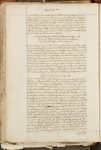Image 132, fourth book, folio 67b, receipts 50 (contd) to 52.
| The fourthe booke. | ||||
| well until that it be molten, for it will not quickly melte, but by pro- | ||||
| cesse: & then put therein galbanum .℥.2. & then last of all put therein | ||||
| verdegresse ℥.2. & stirre it well until that all be well incorporate to- | ||||
| gether, & then strayne throughe a cleane cloth of canvas & keepe | ||||
| it safe, & if thou wilte make it for the hot gowte greatlye easeinge, then | ||||
| in the steade of oyle olliffe, take oyle of linseede, for that is a passeing | ||||
| colde oyntemente, & when that it is made with the gummes aforsayde, | ||||
| then it will cease all manner of akeinge. | ||||
| 51.Oyle of Exetor is good for ye cold gowte, dropsy, palsy, | ||||
| crampe, & cold stomacke, for ye sciatica, bruiseinge, & | ||||
| many other sicknesses: & it is made thus:. | ||||
| Take rosemarye*.lb.j. Saven.qa. &. bawme, neppe, flowers of lillies marge- | ||||
| rome, puliall ryal, rewe, wormewoode, barke of the ayshe, ye barke of | ||||
| orange, red fennell, hysoppe, fenncreeke, Sage, comyn, elebre white & red, | ||||
| an. m. j. lavender, Suthernwood, bettanye, silex monntayne,.an. m.2.** leaves | ||||
| of lawryell, flowers of camomyll, flowers of broome, barke of elder, | ||||
| centawrye, flowers of cowsoloops, hearbe iue, an. ℥.4. wilde sage, other- | ||||
| wise called ambrose, time* leaves, pellitory of Spayne, red roses, an. ℥.2. | ||||
| bruise thine hearbes as thou mayst have them, & lay them infuse 10 or 12 | ||||
| dayes in twoe gallons of good meate oyle, & then put thereto a gallon of | ||||
| white wine, & boyle them together untyll that the wine be wasted, & then | ||||
| let it coole & strayne it, & use it hot unto all diseases before rehearsed. | ||||
| 52. The mother of bawme artificiall | ||||
| Bawme artificiall, & mother of bawme in many operations havinge the | ||||
| effecte, & workeinge of bawme ryall, & it is made thus. Take turpentine | ||||
| & aqua vite .an lb.j. honye, oyle ollyffe olde & cleare .an. lb di. masticis, | ||||
| mirrhe .an. ℥. Appoponacye*, bdelium, gumme armoniac, Serapinum, ℥.j. & | ||||
| di ligni alloes*, Sandall, cytryne, nutmygnes .an. ℥.j. & di gallingall, comes | ||||
| quibibis, macis, mummia, flowre of canyll, Spickenard, saffron, .an. ℥.j. | ||||
| hearbe John, tree of bawme, seedes of bawme, an. ℥.2. gumme of lawrell, | ||||
| or of figge .℥.6. tile stones quenched in oyle .℥.4. put all these together | ||||
| in a bodye of glasse, & distill it with a slowe fire: the first water will be | ||||
| cleare, but when that beginneth to look cytryne*, then chaunge the re- | ||||
| ceptorye, & increase |
||||
| you perceive it to chaunge into a redder colour, then chaung ye receptory, | ||||
| for the first is good, ye second better, & the last best of all: & the first is | ||||
| called mater balsami artificialis: & the seconde & last which be purer, | ||||
| are called bawme artificiall, the first is good both to eate and drinke, and | ||||
| to anoynte with, the second & the third are good onely to put with other, | ||||
| & each one of these are good by himselfe to all cold sicknesses, & of what | ||||
| vertue the second & the third are, a man may know by the firste, which | ||||
| hath wonderful vertues as are these: a little quantity of the water | ||||
| dronke with wine destroyeth the winde in the stomacke, & in all partes | ||||
| of the bodye: | ||||
Abbreviations are underlined like this Wm. and the expansion may be seen by moving the cursor over it.
| An entry outlined like this has a note which may be seen by hovering over it. |
Transcribed by CTW and JMCN
